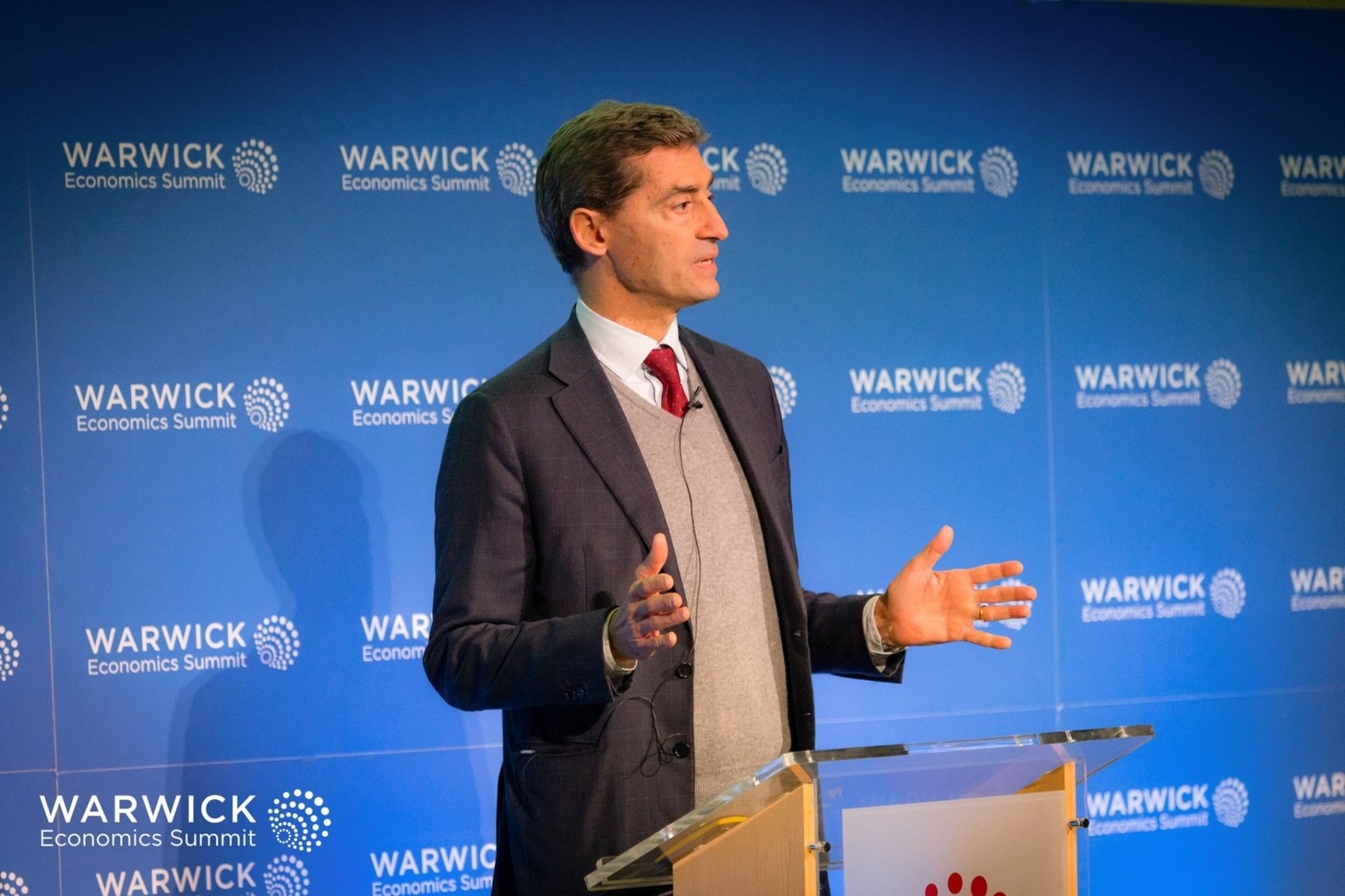Professor Andrea Sironi on the european financial system – WES 2019
Speaking at day two of the Warwick Economic Summit 2019, Professor Andrea Sironi, chairman of Borsa Italiana (the Italian Stock Exchange), did not shy away from addressing the harsh realities still facing the European Financial system, 10 years after it was thrown into disarray by the European debt crisis in 2009.
For those of you who are unware of what the European sovereign debt crisis is, it is a prolonged period of economic disarray that started in 2009 just after the GFC, and has led to economic ‘chaos’ in several Eurozone countries such as Iceland, Greece, Spain and Italy. It all started when several EU member states were unable to bail-out their own sovereign banks, and had to rely on third party institutions such as the European Central Bank (ECB) and the International Monetary Fund (IMF). This caused a vicious cycle where one banking crisis led to an economic crisis, which led to a government sovereign debt crisis which in turn led to another banking crisis. Let’s just say it wasn’t a very good time for many European financial institutions, and it still isn’t.
Many EU member states still don’t understand that being a member of the Eurozone means not only sharing values, but sharing rules too
Given the magnitude of the issue, it was no surprise that everyone in OC1.05 was glued to their seats to hear one of Europe’s leading financial academics deliver his verdict. Now when I say Professor Sironi is one of Europe’s leading financial academics, I do mean it. Not only is he chairman of Borsa Italiana, but he is also Professor of Banking and Finance at Bocconi University, a non-executive director of the London Stock Exchange and was previously a visiting scholar at the Federal Reserve in Washington DC. Now that’s a CV any WBS student would dream of having.
When addressing the audience, Professor Sironi was refreshingly blunt in his assessment of the European financial system, “Many EU member states still don’t understand that being a member of the Eurozone means not only sharing values, but sharing rules too”. What he means here is that since the creation of the European economic zone in 1994, the lack of regulation allowed many member states to implement differing approaches to monetary policy, all to differing degrees of success. Because of this, when the debt crisis hit no one was adequately prepared, and the after affects are still being felt today.
Many sovereign banks are still caught in what Professor Sironi referred to as a “doom loop”. Since 2009, European banks have continued to increased their holdings of domestic government bonds, meaning that the performance of the banks are now intrinsically linked to the performance of the sovereign, meaning if one fails it is likely the other will too, hence the name “doom loop”. Despite this, Mr Sironi believes that lawmakers need to be careful as to how they approach this issue, “If we try to regulate banks too much and increase capital requirements by too much, it may prolong the economic slump many European countries are already in”.
“We have two countries in the EU, countries that are small, and countries that have not yet realised they are small”
Whilst this paints a pretty bleak picture, Mr Sironi was still optimistic in the ability of lawmakers and governments to improve the European financial system. First on the agenda needs to be breaking the idea of having ‘national champions’, banks that are ‘champions’ of the country they operate in and are only closely regulated by domestic financial bodies. To do this, we need to strengthen common recourse at the EU level and have a stronger supervisory body that can, and does, hold everyone to the same standard.
A more ambitious dream Mr Sironi has for the EU is a single stock exchange, hoping that this would improve European integration and cooperation and strengthen the financial system. Unfortunately, we are not going in that direction and the current wave of nationalism sweeping the world making is not helping. The EU needs unity, but according to Mr Sironi, “We have two countries in the EU, countries that are small, and countries that have not yet realised they are small”.

Comments (1)
Current financial situation is very bad for world economy